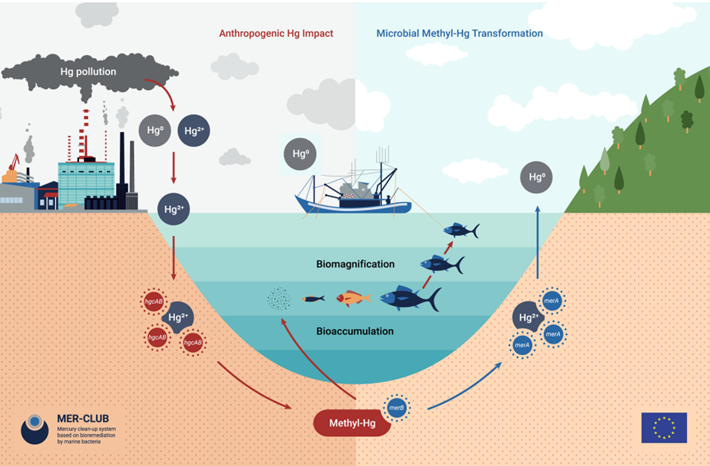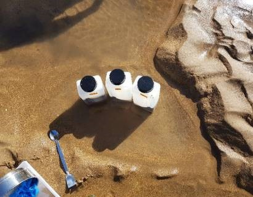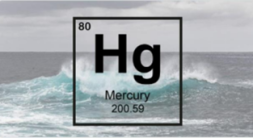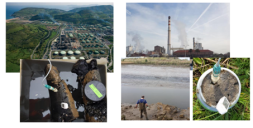
Mercury (Hg) pollution is a critical problem worldwide, with large socio-economic, environmental and health impacts. Industrial processes, fossil fuel combustion and human activities have increased total atmospheric Hg concentrations by about 450% above natural levels. Once it reaches terrestrial and marine systems, Hg is transformed into more toxic forms such as methyl mercury (MHg), which can persist in the environment and organisms for extensive periods of time. Chronical exposure to this element by eating fish and seafood which have bioaccumulated mercury in their tissues produces adverse health effects. Despite the drastic reduction of mercury emissions in recent years, the concentration of this element in marine fish from different European seas has not been significantly reduced, highlighting the urgent need for decontamination solutions.
MER-CLUB has addressed the global challenge of fighting mercury pollution by providing novel information on Hg transformations in marine sediments, a highly relevant yet poorly characterized reservoir of this pollutant. The project also moved towards designing a Hg clean-up system for the complex sediment matrix based on bioremediation by marine bacteria. Coordinated by Azti in Spain, the project worked on sediments extracted from the Baltic, Mediterranean and the Atlantic.
Marine microorganisms hold the genetic potential for mercury detoxification and represent an economic, sustainable and highly efficient alternative for decontamination:
" Reducing mercury levels in sediments through bioremediation is the basis to restore polluted environments. The mercury decontamination of marine ecosystems will, undoubtedly, have a direct and positive impact on human health”, ensures Dr. Andrea G. Bravo, young researcher of MER-CLUB.
Using environmental genomics, cell sorting and other advanced isolation approaches, MER-CLUB has identified marine bacteria and consortia with high potential for mercury bioremediation. By isolating a collection of more than 1000 bacterial strains from highly polluted European sediment samples, testing their Hg reduction capability, and optimizing protocols for biomass upscaling and immobilization of selected candidates, MER-CLUB has established a basis for future development of a mercury clean-up system able to operate in dredged marine sediments.
This project video shows the way MER-CLUB conducts its research. By developing an eco-friendly clean-up system for mercury, the project is actively supporting the European Zero Pollution Action Plan and providing a greener alternative to traditional methods like landfill disposal and thermal processes, which are less sustainable. At international level, MER-CLUB has supported the Minamata Convention by providing observations of mercury contamination in marine sediments.
MER-CLUB is also creating career opportunities and positively contributing to gender diversity in scientific research: three women scientists from the MER-CLUB consortium have been recognized among the top 5,000 women working in Spanish institutions. Check out the video the project made on International Day of Women and Girls in Science featuring the women scientists behind MER-CLUB.
To know more about the project follow them on social media #MER_CLUB, @mer_club, check their project website and have a look at the news articles by Ecomagazine and DG MARE.
- Reference
- EMFF-BlueEconomy-2018-863584
- Project duration
- 11 Nov 2019 - 31 Oct 2023
- Project locations
- Spain
- Overall budget
- €1 044 889
- EU contribution
- €835 91180% of the overall budget
- Project website
- Project website
Stakeholders
Coordinators
Participants
AGENCIA ESTATAL CONSEJO SUPERIOR DE INVESTIGACIONES CIENTÍFICAS (CSIC)
- Address
- Spain
- Website
- https://www.csic.es/en
SWEDISH UNIVERSITY OF AGRICULTURAL SCIENCES (SLU)
- Address
- Sweden
- Website
- https://www.slu.se/en/
UNIVERSITAT AUTÒNOMA DE BARCELONA (UAB)
- Address
- Spain
- Website
- https://www.uab.cat/web/universitat-autonoma-de-barcelona-1345467954774.html
UNIVERSITÉ DE PAU ET DES PAYS DE L'ADOUR (UPPA)
- Address
- France
- Website
- https://www.univ-pau.fr/fr/index.html
AFESA MEDIO AMBIENTE SOCIEDAD ANÓNIMA (AFESA)
- Address
- Spain
- Website
- https://www.afesa.es/
GESELLSCHAFT ZUR FÖRDERUNG VON MEDIZIN-, BIO- UND UMWELT- TECHNOLOGIEN E.V. (GMBU)
- Address
- Germany
- Website
- https://www.gmbu.de/



